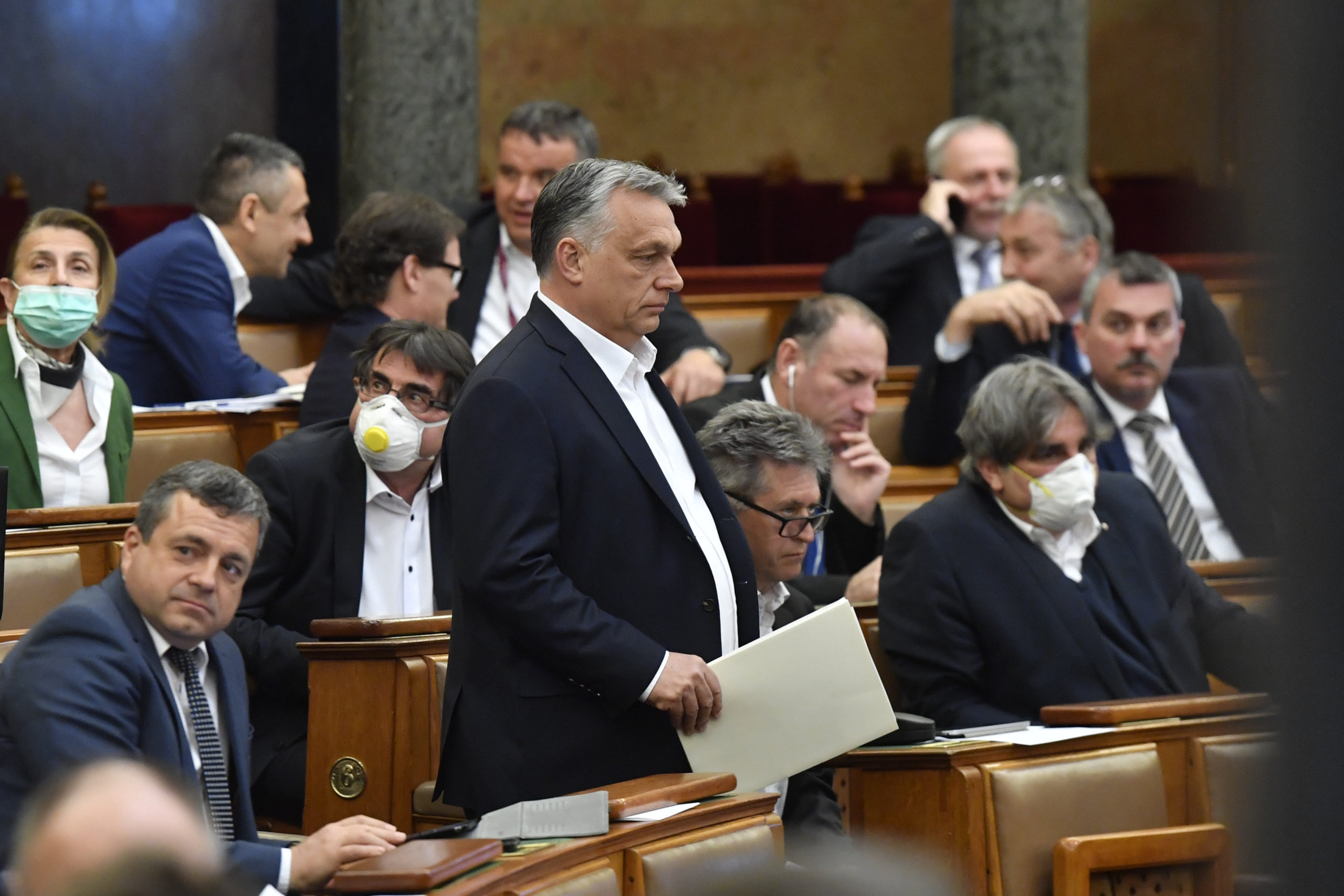The economic downturn driven by the pandemic has already caused enormous damage to the news media even in wealthy and stable democracies. Try to imagine then the impact it has in a country where independent journalism has been shrinking rapidly for years as the result of a lethal mix of financial pressures and political attacks.
Viktor Orbán, called “Trump before Trump” by former White House chief strategist Steve Bannon, has been in power since 2010. He made cracking down on independent media one of his top priorities.
Under his rule, the supposedly impartial public media has been turned into a mouthpiece of the government. His business allies took over previously independent news organizations, including a popular television channel and the country’s most popular news website, and transformed them into propaganda outlets. The biggest opposition newspaper was shut down as part of these maneuvers while every single local newspaper in the countryside came under the control of Orbán and his allies.
Those still standing are often accused by the government and its propaganda machine of being part of the opposition. While there are outlets that follow more partisan lines, this is definitely not true for all of them. The constant attacks, however, hurt the credibility of everybody, even that of more objective news organizations.
Whenever facing criticism over the state of the media, the government is quick to point out that there are still several critical news outlets in Hungary. And that is true. Some of the most widely read online publications and even the most watched television channel are independent from the government and they often publish critical or hard-hitting stories about Orbán and his circle. But it is also true that even five years ago we had a much healthier landscape with many more outlets doing what journalism should: informing the public and holding the powerful to account.
The danger of the current crisis is that it has the potential to cause serious, maybe even irreversible, damage to the remaining independent outlets. Their financial foundation is already shaky and not only because of the universal business model problems. (Yes, Facebook and Google siphoned off a big part of the advertising money in Hungary, too.) But also because Hungary is a small market where one of the most dominant advertisers happens to be the government. And it is using its gigantic marketing budget to further disrupt the market: the friendly outlets can count on lucrative ad campaigns while the critical ones will not see any of that money.
Independent media can only rely on the advertisements of private companies and those readers who are willing to support their favorite outlets. Online paywalls are not prevalent in Hungary.
These already unstable financial legs can be crushed by the economic downturn the pandemic is expected to bring. Bankrupt companies or ones with tight budgets will advertise less and readers who lost their jobs or simply face uncertainty may think twice before they spend money on supporting news outlets.
In fact, the suffering has already started: several media companies announced budget cuts and layoffs in recent weeks.
And, since we are in Hungary, there is a political threat in addition to the financial struggles.
Earlier this week, the Hungarian parliament, where Orbán’s right-wing coalition has a supermajority, adopted a new law that authorized him to rule by decree indefinitely. The government says that this will end as soon as the coronavirus crisis is over. But opposition parties, human rights organizations, and several E.U. member states criticized the move, saying that this practically means the end of Hungary as a democracy.
The critics find one element of the law especially alarming. It threatens jail terms of up to five years for those who spread false information that hampers the fight against the pandemic. Some see this as a way to further silence independent news outlets that have been questioning the preparedness and the efficiency of how the government is handling the crisis.
But it is not all bad news.
The government has also made some supportive gestures toward media companies. As part of its economic support package, media firms will be exempted from paying some portion of their social security contributions. There is some confusion over whether this will apply to every outlet, but it seems certain that even many of the independent media companies will be among the beneficiaries.
The political picture is also more nuanced. Orbán rarely backs down from his positions, which his critics see as a sign of his authoritarian tendencies. Nonetheless, in the past few weeks he has proved to be unusually insecure at some key moments. One morning he said that schools would stay open, only to announce in the evening that they would have to close. Then earlier this week his government introduced a new law that would have cut back the powers of local municipalities, and just as suddenly withdrew it.
This is not what we have been used to over the last 10 years. It is just another sign—not that we needed one—that we are living in unprecedented times.
And while it is an understandably stressful time for everybody, this crazy period is also a huge opportunity for journalism. By informing the people who are hungry for reliable information and by holding the powerful to account—and thus, making their response to the crisis more effective—we can demonstrate the value of our profession, so that when this is finally over we will have a more trusting and fruitful relationship with the public.
Nobody needs that more than Hungary’s embattled journalists.




